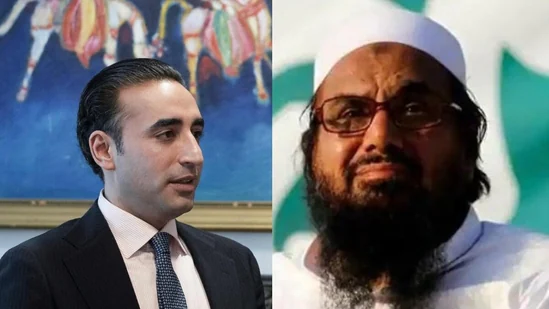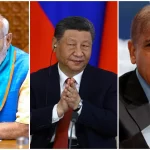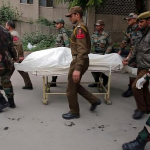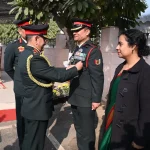In a rare public outburst, Talha Saeed — son of 26/11 Mumbai terror attack mastermind Hafiz Saeed — has lashed out at former Pakistan foreign minister Bilawal Bhutto Zardari for stating that Islamabad may not oppose the extradition of terror leaders Hafiz Saeed and Jaish-e-Mohammad (JeM) chief Masood Azhar to India.
Also Read: Bilawal Bhutto Says Pakistan Open to Extraditing ‘Individuals of Concern’ to India
Bilawal made the remark during an interview with Al Jazeera, where he suggested that as a part of a broader peace dialogue with India, Pakistan could consider handing over the two UN-designated terrorists as a confidence-building measure. “I am sure Pakistan would not be opposed to any of these things,” he said.
This sparked immediate backlash in Pakistan, especially from radical circles. Talha Saeed, defending his father, issued a statement condemning Bhutto’s words, calling them “against the state policy, national interest and sovereignty.” He added, “Bilawal Bhutto is either unaware of the ground realities or promoting the enemy’s narrative.”
Hafiz Saeed has been serving a sentence in Lahore’s Kot Lakhpat Jail since 2019 in terror financing cases, while Masood Azhar — one of India’s most wanted terrorists — is believed by Pakistani officials to be in Afghanistan. India holds both responsible for some of the deadliest terror attacks on Indian soil, including 26/11, the Parliament attack (2001), the Pathankot airbase attack (2016), and Pulwama (2019).
Bilawal acknowledged in the interview that while Saeed is in jail, Pakistan has been unable to trace Azhar. “If India provides proof that he is on Pakistani soil, we will be more than happy to arrest him,” he added.
Indian officials have long accused Pakistan of sheltering these terrorists and using legal loopholes to shield them. Defence Minister Rajnath Singh recently reiterated that Pakistan must hand over Hafiz Saeed, Azhar, and others if it is serious about fighting terrorism.
Bilawal’s comments also reflect Pakistan’s discomfort with India’s new counter-terror approach following Operation Sindoor, during which India launched deep precision strikes against terror launch pads across the LoC. He termed this shift as a “new abnormal.”
For Indian viewers, the episode highlights the internal contradictions in Pakistan’s terror policy — where moderate political voices are often silenced by hardliners, and efforts to cooperate with India are painted as betrayal. Despite being proscribed by the UN and Pakistan’s own National Counter Terrorism Authority, figures like Hafiz Saeed and Masood Azhar still enjoy protection or ambiguity in Pakistan’s legal system.
The ball, once again, is in Pakistan’s court — but with reactions like Talha Saeed’s, the road to justice for victims of terrorism remains obstructed.













